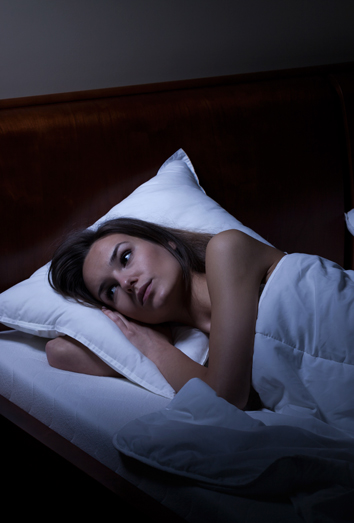Night comes, you lie in bed and start tossing and turning. Hours go by, you look at the clock and you still haven’t fallen asleep. What is happening to you? Why are you having insomnia? And, above all, what can you do to sleep well once and for all? The truth is that sleep problems will affect you at some point in your life, but you must take into account some techniques to overcome this complication.
In this article, we have contacted Héctor Galván, clinical director of the Madrid Institute of Psychology, so that he can give us some effective specialist tricks to overcome insomnia and sleep better. Do you want to know what they are? Pay close attention that this interests you.
Causes and consequences of insomnia that you should know
- Insomnia is divided into several large groups. Primary insomnia is not the most common, but the highest incidence of insomnia has a lot to do with worries, stress, or bad sleeping habits. When could we be talking about chronic insomnia? According to Hector, when we have insomnia for more than 6 months even if it does not occur daily. “There are people who have spent almost their entire adult lives with sleeping problems,” says the specialist.
- As we said, problems, stress or anxiety are usually the main causes of insomnia. It is a problem that appears but usually has to do with others, such as bad sleeping habits or a tendency to worry, to anticipate, to obsession…
- One of the most common causes occurs when a person spends a day or two without sleep and already tends to think that they are not going to sleep anymore. “It is a very common profile, they are people who could even be diagnosed with OCD,” the specialist tells us, “they tend to want to be in control of everything, including control over sleeping.” But if you are watching you if you fall asleep or not, the autonomic nervous system is triggered, the brain is stimulated and you enter into an obsessive dynamic.
- The consequences of insomnia, meanwhile, do not have to be entirely serious. They tend to affect more day to day, according to Héctor. These consequences are focused on problems with concentration, memory, a bad state of mind… Symptoms that do not prevent you from performing at a minimum during the day, but that must not be missed.
Simple habits for good sleep hygiene
- To avoid insomnia and stop sleeping badly, there are some techniques or habits of sleep hygiene guidelines that you can do every day. Among them, the following stand out:
- A first indication is to stop paying attention to see if you fall asleep or not. The ideal is to try to sleep later or even think ‘let’s see how long I can last without sleeping’. Surely you get to sleep earlier than expected.
- Practicing relaxation techniques or mindfulness also helps a lot to fall asleep. Among these techniques we can highlight that of focusing attention on something like, for example, the sensation of touching the pillow. This will help you not to focus on whether or not you are falling asleep.
- A basic and simple guideline is not to go to sleep until you feel sleepy. “Sometimes it’s hard for us to sleep because we go to bed early, but it’s a mistake because the brain gets used to being in bed and being active,” Héctor tells us, “we have to re-educate it so that it associates the bed with falling asleep.”
- If you go to bed and are still awake, you must get up. It is as if you told the brain that if it is not to sleep, you cannot be in bed. You must get up, do a boring task like housework, and wait for sleep to set in again to go back to bed.
- What do you think of these tricks to overcome insomnia? Do you know of any sleep hygiene habits other than those mentioned? Now you will be able to sleep better!






